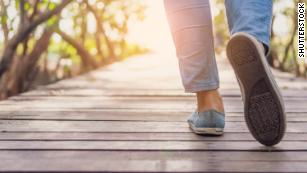It’s no secret that sleep deprivation has many detrimental effects, but new research shows this includes an unsteady gait as well. Scientists used to believe that walking was a “fully automated process,” but we now know the brain significantly influences this action. According to the U.S. Centers on Disease Control and Prevention, adults need to sleep at least seven hours each night for optimal brain function. Any less may affect your “ability to walk purposely, avoid obstacles and keep your balance.” Observing college students during a treadmill test at the University of São Paulo, Brazil, a new study published in Scientific Reports found “errors were larger in people with acute sleep deprivation.” Arturo Forner-Cordero, the lead author of the study, found, “Oddly, however, students who had attempted to reduce their sleep deficit by sleeping in on weekends performed a bit better on the task.” According to the National Sleep Foundation, as little as 10 minutes a day of aerobic exercise can “drastically improve nighttime sleep quality.”


